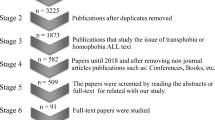Abstract
The harsh consequences of the American plant closing epidemic in recent years on workers, their families, and their communities, has raised widespread ethical and moral concerns. In the early 1970s, a diverse group of academics, social activists, public policy analysts, and special interest organizations developed a number of legislative proposals designed to restrict closings by law. The proposals encountered many formidable obstacles in an increasingly hostile free-market environment. The business community was itself moved to assume some of the burdens precipitated by closures either unilaterally or through collective bargaining. At the same time, powerful business interests tenaciously fought the enactment of mandatory closing restrictions into law. Nevertheless, through a prolonged and tortuous odyssey, the requirements of advanced notice and worker severence pay have now begun to root in law. Their success stands as evidence of a continuing American public policy receptivity to ethics-driven concerns.
Similar content being viewed by others
References
Arnold, T.: 1980, ‘Existing and Proposed Regulation of Business Dislocations’, University of Detroit Journal of Urban Law 57, 209–55.
Bluestone, B. and Harrison, B.: 1980, Capital and Communities: The Causes and Consequences of Private Disinvestment (The Progressive Alliance, Washington, D.C.).
Bradshaw, T. and Vogel, D. eds.: 1981, Corporations And Their Critics (McGraw-Hill, New York, NY).
Briefs, Exhibits and Decision, Fort Halifax Company v. P. Daniel Coyne, U.S. Supreme Court, Decided June 1, 1987.
Cipparone, J.: 1981, ‘Advanced Notice of Plant Closings: Toward National Legislation’, Journal of Law Reform 14, 283–319.
Green, M., Tepper-Marlin, A., Kamber, V., and Bernstein, J.: 1980, The Case For A Corporate Democracy Act (Americans Concerned About Corporate Power, Washington, D.C.).
Kay, L. and Griffen, K: 1983, ‘Plant Closures: Assessing the Victims' Remedies’, Willamette Law Review 19, 199–227.
Kovach, K. and Millspaugh, P.: 1983, ‘The Plant Closing Issue Arrives at the Bargaining Table’, Journal of Labor Research IV, 367–75.
Lynd, S.: 1979, ‘Investment Decisions and the Quid Pro Quo Myth’, Case Western Reserve 29, 296–412.
McKenzie, R.: 1982, Plant Closings: Public or Private Choices (Cato Institute, Washington, D.C.).
McKenzie, R.: 1984, Fugitive Industry: The Economics and Politics of Deindustrialization (Harper & Row, Cambridge, Mass.).
Millspaugh, P.: 1982, ‘The Campaign for Plant Closing Laws in the United States’, The Corporation Law Review 5, 291–307.
Millspaugh, P.: 1987, ‘The Managerial Prerogative in Business Closings: A Legal and Policy Perspective’, The University of Toledo Law Review, 19, 1–40.
Millspaugh, P.: 1989, ‘Severence Pay: Moving from Managerial Prerogative to Worker Entitlement’, Business and Society 28, 6–12.
Nader, R., Green, M., and Seligman, J.: 1976, Taming The Giant Corporation (W. W. Norton, New York, N.Y.).
National Center on Occupancy Readjustment: 1986, ‘Summary of Federal and State Bills on Plant Closing’, Daily Labor Report No. 241, 4–7.
Report of the Secretary of Labor's Task Force: 1986, Economic Adjustment and Worker Dislocation in a Competitive Society (U.S. Department of Labor, Washington, D.C.).
Rhine, B.: 1984, ‘Business Closings And Their Effects on Employees — The Need For New Remedies’, Labor Law Journal 35, 268–80.
Sturdivant, F. and Robinson, L.: 1981, The Corporate Social Challenge (Richard D. Irwin, Homewood, Ill.).
Author information
Authors and Affiliations
Additional information
Dr. Peter E. Millspaugh is an Associate Professor of Business Legal Studies at the School of Business Administration, George Mason University, located in Northern Virginia outside of Washington, D.C. His articles and book reviews have appeared in: Academy of Management Executive, New England Law Review, Saint Louis University Law Journal, University of Toledo Law Review, Pacific Law Review, The Uniform Commercial Code Law Journal, Business Law Review, The Labor Law Journal, The Corporation Law Review, Business and Society, The Detroit College of Law Review, The Real Estate Law Journal, The Journal of Corporation Law, Business Horizons, The University of Baltimore Law Review, The Journal of Labor Research, University of Detroit Journal of Urban Law, Loyola International and Comparative Law Journal, Seton Hall Legislative Journal, Arizona Journal of International and Comparative Law, Business and Society Review, The Government Accountants Journal, Public Contract Law Journal, The University of Georgia Journal of International and Comparative Law and numerous Proceedings of national and regional conferences of the American Business Law Association.
Rights and permissions
About this article
Cite this article
Millspaugh, P.E. Plant closing ethics root in American law. J Bus Ethics 9, 665–670 (1990). https://doi.org/10.1007/BF00383393
Issue Date:
DOI: https://doi.org/10.1007/BF00383393




